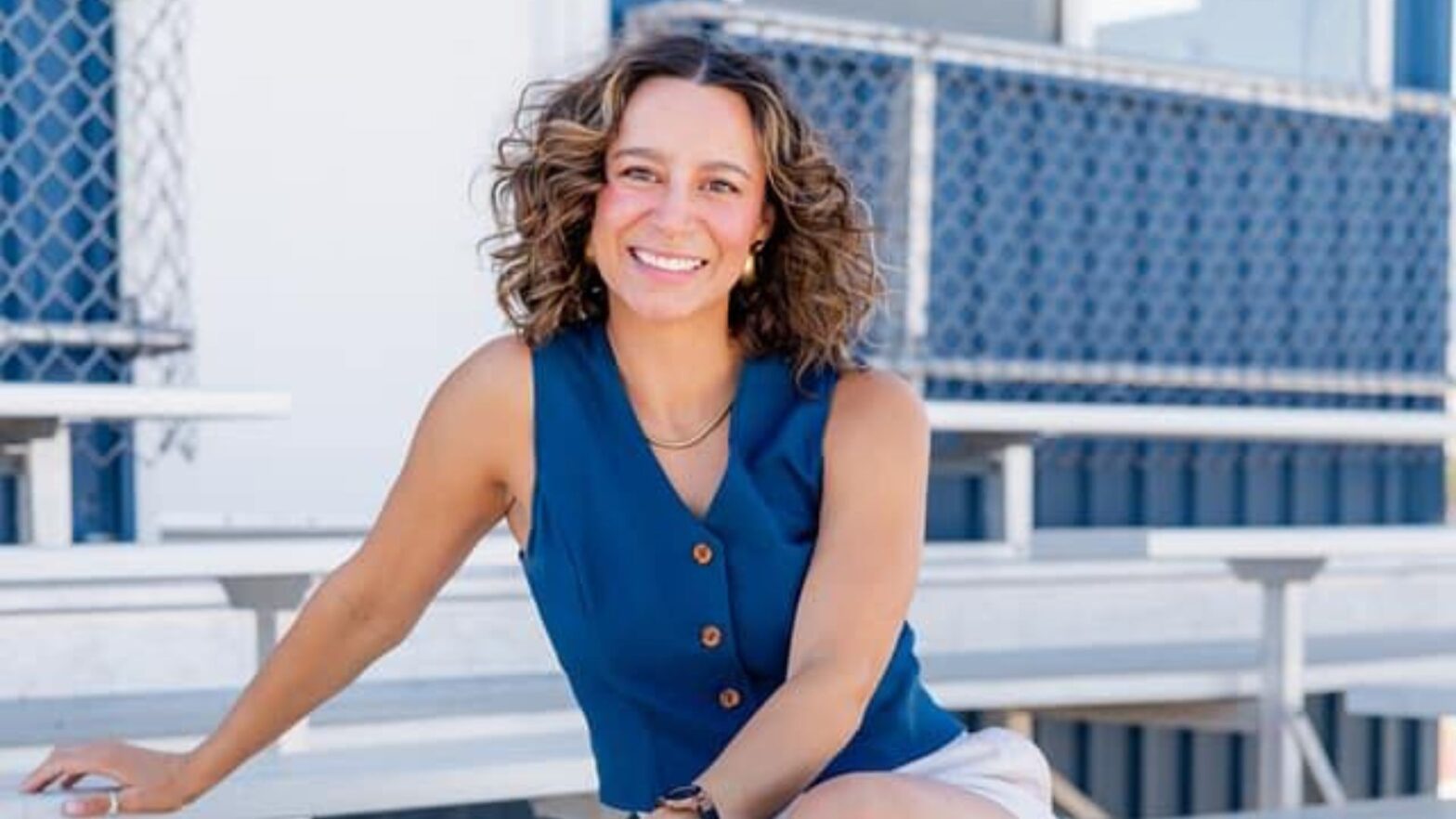When Ellise McGowan ‘17 picked up a bat to play T-ball as a 5-year-old, she never truly put it down.
Instead, she followed the sport through its softball evolution year after year, including college at Newman University.
“Softball has given me the freedom to be myself,” McGowan said. “I’ve always been a hard worker, but sometimes I feel like people don’t see how hard I work. Softball is the one place where people can physically see how much work I’ve put in — where I can show off a little, get dirty, have fun and be myself.”
Now as head varsity coach for the softball team at Carson High School in Nevada, McGowan gets to tap into the love that first drew her to the sport.
“I love watching somebody dive, get dirty, have fun and succeed,” she said. “I also want to be that person they turn to when they fail to help them through it.”
A 2013 Carson High School graduate herself, McGowan returned to her stomping grounds as the junior varsity softball coach at Carson High in 2023.
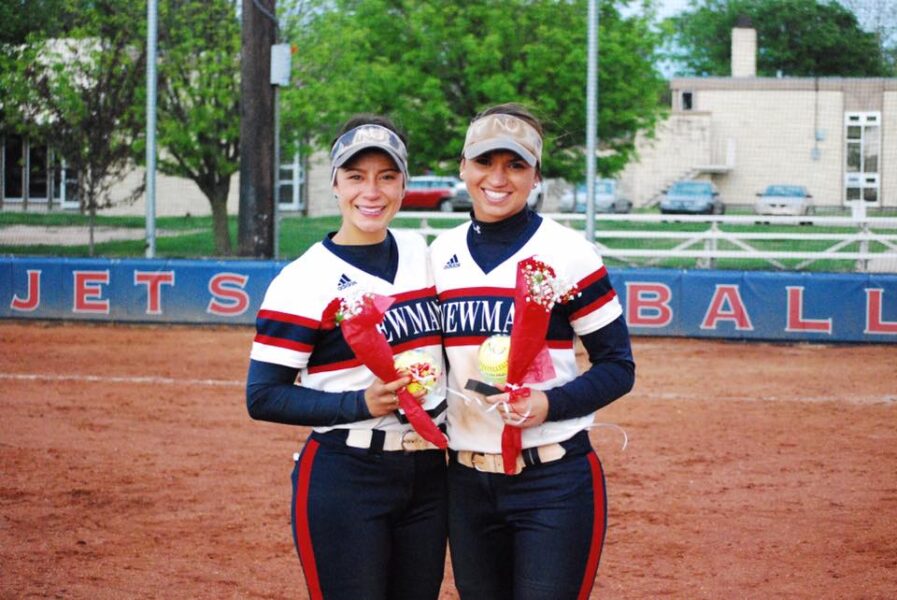
For McGowan, “there’s nothing more fulfilling” than coaching softball and helping form young women. One of McGowan’s biggest goals for the program is to find new ways to create team bonding opportunities for the girls.
“The best teams are the ones that know each other,” McGowan explained. “They know their quirks and what to say to that person when they just had an error. They can ask, ‘Is this somebody who needs a joke right now? Or is this somebody that needs a pat on the back?’”
Ensuring the young athletes have what they need to succeed, from practice shirts to a clean shed for their equipment, contributes to that family feeling.
“I want them to feel like somebody cares and that they’re worth the effort,” she said.
McGowan knows that for many girls, softball is not forever.
“It ends at some point for all of us,” she said. “It was a big part of my identity for so long, and what happens when that sport is done? You can feel lost, and I don’t want them to feel that way. If I can spin it and make it more about hard work, about being respectful and loving to everyone around them and to teach them responsibility, then hopefully when they walk away from this, they can say, ‘You know what? I can do anything because these things helped me through.’”
If I can spin it and make it more about hard work, being respectful … and responsibility, then hopefully when they walk away from this, they can say, ‘You know what? I can do anything.'”
Ellise McGowan ’17, head varsity softball coach at Carson High School
An immediate sense of belonging at Newman
McGowan searched for colleges with two non-negotiables in mind.
“I knew that I wanted to play softball and that I wanted to get away from home,” she said.
All it took was one visit to Newman University’s “very green campus” for McGowan to realize it was the place for her.
“I just remember being struck by how beautiful and small the campus was,” she said. “I just thought, ‘This feels like a community.’ And that’s exactly what I wanted.”
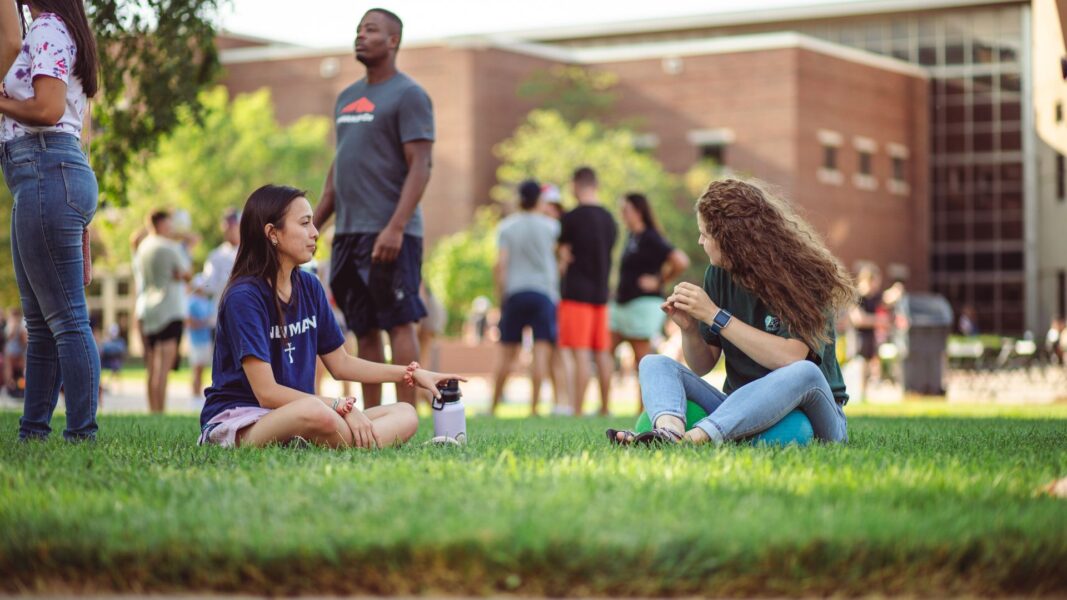
McGowan, a sports communication major, loved that Newman was small enough to feel like a family, but large enough that she connected with different people across campus. She quickly formed a tight-knit group with the women on her softball team as well as with other athletes and students of various majors within clubs like the Hispanic American Leadership Organization and the Sloppy Joe Improv Troupe.
McGowan felt well equipped for her post-graduation internship with the National Baseball Congress in Wichita thanks to the heavy emphasis on writing during many of her Newman courses.
“All that writing really helped me,” McGowan said. “It helped me with my scripts and all of the emails I had to send out. I did 50 post-game interviews with the players and I had to do my own research on every one of those players. It helped me also learn to let go of control because sometimes I didn’t even know who I would be interviewing.”
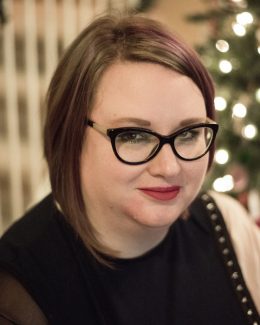
To this day, McGowan keeps in touch with many of her professors and peers — a gift she doesn’t take for granted. She recalled the impact of the late Suzanne Berg, a professor who was “so unapologetically herself,” and Assistant Dean for Arts and Sciences Audrey Hane, who McGowan thinks “the absolute world of.”
“A lot of people don’t have that opportunity after leaving college,” she said. “Some look back and it’s a nostalgic feeling, and for me it is but it’s also not because I’m still very much a part of people’s lives that really did touch me while I was a Newman student.”
Hane started several of McGowan’s communication courses with a gratitude practice — something McGowan implements in her athletes’ daily lives as a way to check in.
“Every practice, we go around our circle and we say one thing that we are grateful for that day,” McGowan said. “Professor Hane mentioned in class that it’s science; gratitude can rewire your brain. And I wholeheartedly believe that. I go to sleep doing it.”
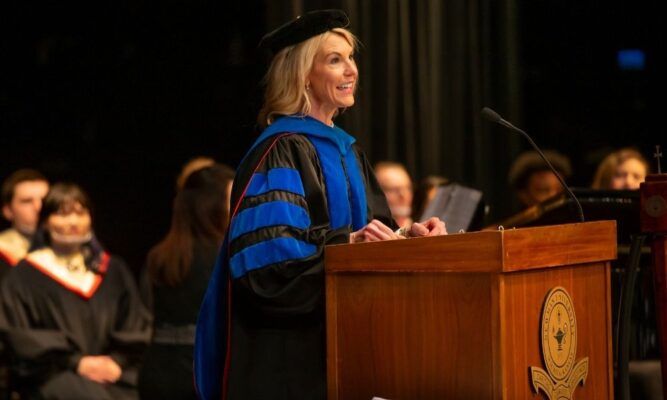
Gratitude for past coaches
Four coaches stand out in McGowan’s mind as leaders she hopes to emulate.
The first coach who left a positive impact was Coach Collins, who pulled McGowan to the side during her middle school basketball tryouts.
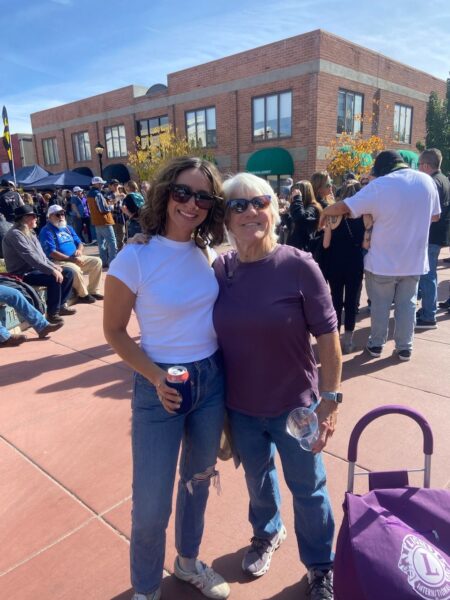
“She straight up told me, ‘You might not be the best player here, but you worked so hard during tryouts. And that’s what I want; I want to see strong players with a good work ethic.’ I thought, ‘I’m not going to let this person down.’ And by the end of the season, I was a starting player.”
The second was a high school tennis coach named Dianne Baker. McGowan recalled showing up with her dad’s old racket, and “Dianne made fun of me for having a softball swing,” she said.
“I liked that she was consistent and treated all of us the same. When we practiced overheads, I would slam the ball with all this aggression I didn’t even know I had. Most coaches would be like, ‘Woah, chill out.’ But Diane was like, ‘Oh yeah! You’re going to kill me one of these days,’” McGowan said with a laugh. “It was those little moments when I felt truly seen by her.”
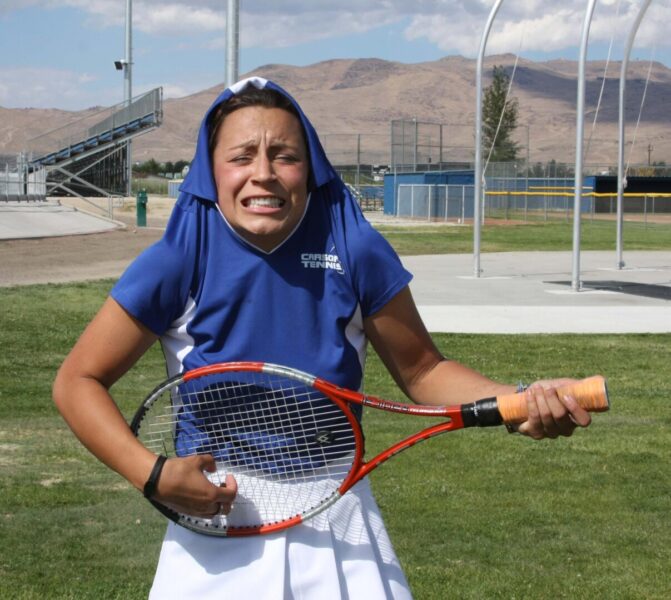
Baker gave McGowan one of her old tennis rackets, and to this day it was one of the best gifts McGowan has ever received from a coach.
Dave Watson was McGowan’s summer softball coach for many years. He often drove three or four girls to practice in Reno each day and consistently offered to help if his athletes ever needed extra grounders, McGowan said.
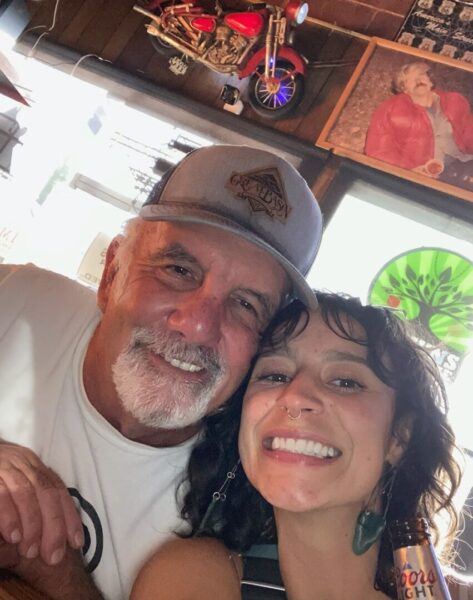
“Even outside of this sport, he has helped me so much,” she said. “He still sends me video links to better myself as a coach and to connect with the players. He’s just an amazing human. He comes to softball games even though he has no grandkids that are playing. He just loves the sport that much.”
Finally, Bob Carvin was a high school softball coach who McGowan reconnected with when she started at Carson High School as the JV coach.
“That man has not changed one bit,” McGowan said. “I think he’s in his 80s and he’s still out there. He built the drags I have. We have a beautiful dugout because Bob repainted it every year, and we have an area for our helmets because Bob built that. We have beautiful fields, all because Bob has worked on them.”
Carvin trained McGowan to pitch so she could properly do front tosses for her athletes, a gift that proved to be invaluable for her coaching career.
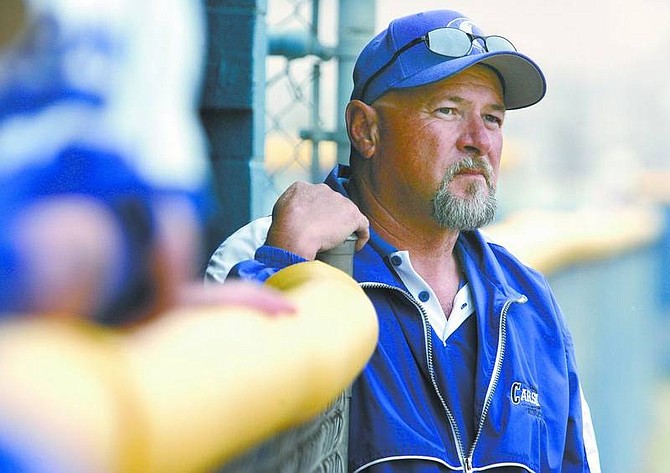
“I also know how to properly get a field together because of him,” she said. “I would have had a really hard transition without him. I’m just so incredibly grateful for him.”
Finding her ‘thing’ through coaching
McGowan recalled being tough on herself after graduating from Newman and finishing her internship with the National Baseball Congress (NBC).
“I loved the NBC, but it just didn’t quite feel right,” she said. “I moved back to Nevada and I was a nanny for a little bit, I worked at a greenhouse and a pizza shop. I loved the interactions and different parts of all of those things, but again it just wasn’t a good fit. And then I found that thing that you hear of people finding — and it was incredible.”
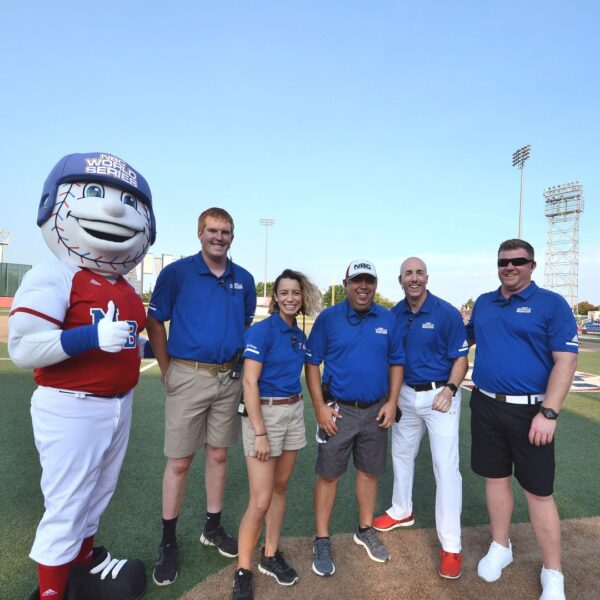
Newman Alumni Association
Are you a graduate of Newman University? Keep in touch and update your alumni info to be informed of the latest and greatest happenings within the Newman Jet nation.
